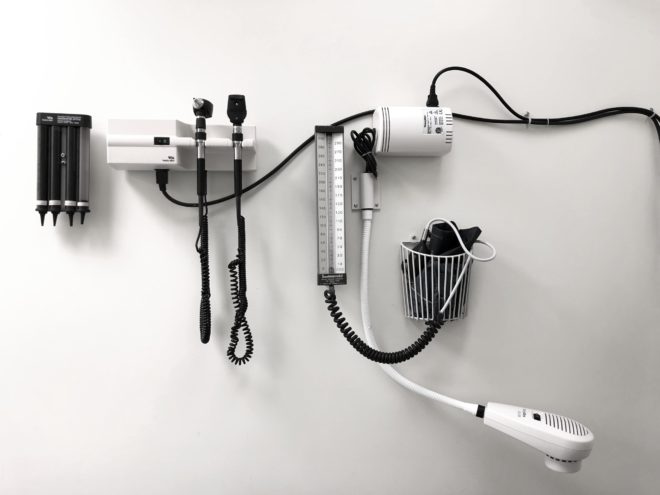Medical sales is considered a sophisticated B2B sales role. You are dealing with complex products in a serious setting. The hospital is a literally a life or death environment. There is typically a lot of competition for any type of product. There will be many strong companies competing for limited market share because it is a lucrative industry for manufacturers. This means there will be a lot of other reps in your territory selling a similar product. In this article we cover how to sell medical equipment to hospitals.
Related: Medical Device Sales Process
Selling Medical Equipment
To be successful, you do not need to study a detailed sales process like a robot. Most importantly, you just need to understand that there are steps involved and things take a time. If someone comes from another B2B sales domain they may not be familiar with all the layers involved while selling to a hospital. This includes dealing with vendor credentialing, GPO contracts, local health system standardization contracts, legal and compliance, and the list goes on. We haven’t even started talking about the main goal of convincing end users to implement your product.
How Do I Sell My Medical Device To The Doctor?
There are many different stakeholders throughout a hospital and health system. To be effective in a territory, you need to work with all of them. Each stakeholder has their own objective and priorities. It is important to understand this as you navigate the sales process.
Related: Medical Device Sales Pitch
How Do I Sell A Medical Device?
1. Materials Management & Purchasing
Purchasing is the first stakeholder to address when considering how to to sell medical equipment to hospitals. Every rep will deal with materials management to some extent. Some more than others. Materials management is involved with making sure a hospital has all the products they need to operate efficiently and effectively. This includes managing inventory and getting the best pricing from vendors. The purchasing department deals mostly with consumable items that are ordered regularly. They are the masters of these type of repeat purchases. The individual clinical departments and clinicians will drive the purchasing process for new products or high end capital equipment. It is always good to have a friend in materials management!
2. Clinical Department
In terms of clinical department, I am referring the OR, Cath Lab, Radiology, Clinical Laboratory, etc. These are the environments where the products get used. Medical devices are very specific instruments. The end users know the technology best. Physicians attend conferences and talk to their peers to get an idea on the latest and greatest tools to help them perform their jobs. Typically, the most important stakeholder in medical sales is physicians and the administrative leadership of a particular department.
3. Clinical Engineering
The biomed folks are the ones who fix and service medical equipment throughout hospital. Their role in the purchasing process varies throughout different health systems. Regardless, they have visibility and influence on almost every purchase. They can be your worst enemy or your best friend. When a piece of equipment breaks and needs to be replaced, they will be the first to see it.
4. Clinicians
As I have stated previously, the best way to drive new business in medical sales in through the physicians. While there are other stakeholders that have to be in agreement, physicians have the biggest voice. After all, they are the ones that will be using the products. Strong physician relationships are everything whether you sell consumables, medical, devices, or capital equipment. Start here and build outwards during the sales process.
5. Compliance & Legal
Compliance and legal can be your worst enemy or best friend when figuring out how to sell medical equipment to hospitals. These folks may not help you generate new clinical interest, but they have the influence to push business your way. If a competitor is not in compliance with a given health systems polices, this may be good news for you. The legal department can also slow down potential deals. A sales representative needs to be able to navigate this part of the sales process. While it is not an every day part of the job, it has to be done sometimes.
6. Accounting & Finance
Why is there always billing issues? Once a product ships to a customer they will need to pay for it. One would think this process would be relatively straightforward. For the most part it is, and the sales rep will not be involved. But sometimes there are discrepancies. Maybe the customer was billed for an additional item? Maybe the pricing does not match up with the PO? Regardless, the sales rep is an easy point of contact for the customer. The customer may prefer to call the sales rep for these type of issues rather than deal with an accounting office or an 800 number. While this won’t make or break a sale, it is important post sales follow up activity that is required to keep the client happy.
Related: Is Medical Device Sales Hard?
